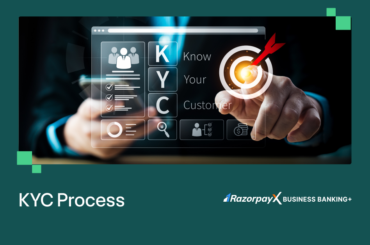A business loan is a type of loan designed to provide financing for various business purposes, such as purchasing equipment, funding operational expenses, expanding the business, or starting a new venture. Business loans are typically provided by banks or other financial institutions, and they can be secured or unsecured. The loan terms, interest rates, and repayment schedules can vary depending on the lender and the borrower’s creditworthiness and financial situation.
Before applying for a business loan or any other type of loan, it is advisable to check your eligibility. This will help you determine the likelihood of loan approval or denial. The eligibility criteria for business loans may differ among financial institutions, and meeting these criteria depends on various factors such as your financial history, credit score, repayment history, business stability, and overall profile.
Top factors that lenders consider while approving business loan applications
- Credit profile
Lenders primarily focus on examining the business credit profile, which plays a vital role in determining the business loan approval chances. A sound business credit profile reflects the financial practices of a business.
Furthermore, lenders may evaluate the number of loan applications submitted by the business, which helps them gauge the credit risk involved. A strong credit profile enables a business to obtain larger loan amounts at more favourable terms.
Hence, businesses should regularly review their credit reports and ensure that there are no inaccuracies or errors to increase their chances of securing business loans.
Also read: Hard Credit Score Check Vs. Soft Credit Score Check: What They Are and Why They Matter?
- Business plan
Lenders also verify if the borrower can furnish a comprehensive business plan to understand the financial management of the business and its ability to repay the loan on time. Therefore, a well-structured business plan can assist a business in overcoming obstacles to secure external credit options. To achieve this, businesses can utilise a business loan calculator to assess their financial position beforehand.
- Financial stability
Lenders also evaluate the financial stability of your business. They may ask for financial statements such as balance sheets, profit and loss statements, and cash flow statements to assess your business’s financial health. A profitable business with a positive cash flow is more likely to be approved for a loan than a business that is struggling financially.
- Documentation
Once a business submits its documents, lenders examine them thoroughly before approving the loan application. Any discrepancies found in the documents can delay the process or even lead to the rejection of small or start-up business loan applications. Therefore, business owners must possess the following documents to obtain quick loan approval:
- KYC papers of applicants/ business partners
- Business vintage and proof of address
- Business loan request letter
- Completed application form
- Income proof
- Establishment certificate/ certificate of incorporation (if LLP/company)
- Partnership deed
- Copies of IT return
- Bank statements
- Proof of business continuation
The list of documents provided above is not exhaustive, and lenders may ask for additional documents as per their requirements.
- Collateral
Collateral is a valuable asset that you pledge to the lender to secure the loan. It could be your property, equipment, or any other asset that has a significant value. Lenders usually prefer applicants who can provide collateral as it reduces their risk of loan default. However, it is important to note that not all loans require collateral.
- Debt-to-income ratio
The debt-to-income ratio is the ratio of a businesses’ total debt to the total income. Lenders evaluate this ratio to assess a businesses’ ability to repay the loan. A lower debt-to-income ratio indicates that a business has enough income to cover debt obligations and are less likely to default on loan.
- Industry type
The industry in which your business operates can also influence your loan eligibility. Lenders may prefer businesses that operate in industries that have a stable market and growth potential. Some industries such as real estate, healthcare, and technology are considered less risky by lenders.
- Business age
The age of your business is another important factor that lenders consider. A well-established business with a proven track record is more likely to be approved for a loan than a startup. Lenders usually prefer businesses that have been operational for at least two years.
- Borrower’s reputation
When considering loan applications, lenders will evaluate the honesty and ability of a business to repay the loan. They will examine factors such as the borrower’s qualifications, recommendations, business progress, and reputation.
The lender will be cautious about massive debts, unpaid bills, or legal disputes, which are warning signs. Therefore, business entities should review all criteria and ensure that they are debt-free before submitting a loan application.
How can you avail a short-term business loan from Razorpay?
Razorpay offers businesses an alternative way to secure funds without having to meet strict eligibility requirements for business loans. This innovative banking platform not only addresses the banking needs of businesses but also provides credit options without requiring collateral, such as Razorpay Line of Credit.
Line of Credit is particularly beneficial for MSMEs and start-ups who may not have a credit history or assets to pledge as collateral.
Razorpay Line of Credit has no processing charges, maintenance fees, or pre-closure fees, which further reduces the cost of borrowing. Businesses that have been operating for at least 12 months and have an annual turnover of Rs. 20 lakhs are eligible for this credit service.
Frequently asked questions:
How does one’s income affect business loan eligibility?
Lenders evaluate the borrower’s ability to repay the loan by analysing their income status. If the borrower has a long and stable income history, they are seen as trustworthy and secure.
What are the documents required to avail Razorpay Line of Credit?
To apply for Razorpay Line of Credit, the following documents are needed:
- Business KYC documents
- Primary bank account statements
- KYC papers of major shareholders
What are the parameters that affect business loan eligibility?
Eligibility for a business loan is determined by factors such as the age of the business, credit score, revenue generation, ability to repay, cash flow, and others.
How does the age of business affect its business loan eligibility?
Lenders also consider the age of the business when reviewing loan applications. Older, well-established businesses are viewed as more financially stable and are therefore more likely to receive larger loan amounts from traditional lenders than startups.





